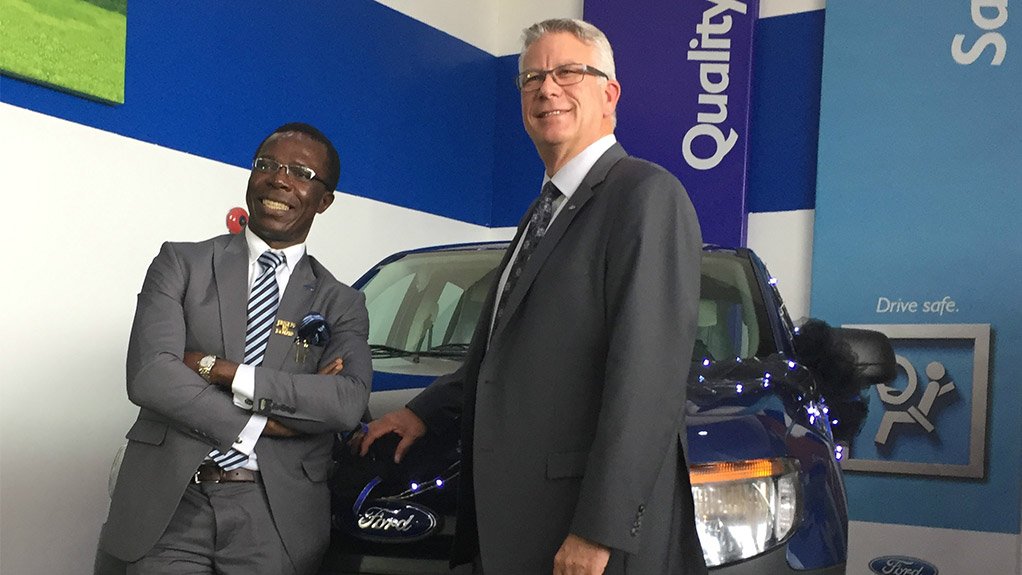The first Ranger bakkie produced at Ford Motor Company’s new Nigerian plant has rolled off the assembly line.
Ford in August announced that it would produce the Ranger in the West African country, from kits supplied by its South African plant.
“The facility will accommodate one shift and will produce an initial ten units per day for the Nigerian market, creating approximately 180 direct and indirect jobs. Over time, this will gradually expand," says Ford Motor Company of Sub-Saharan Africa president and CEO Jeff Nemeth.
The models that will initially be built in Nigeria are the 2.5 l petrol 4x4 double-cab base model and the 3.2 l TDCi XLT 4x4.
“Africa is one of the youngest markets in the world and presents a huge opportunity in terms of consumption,” notes Nemeth.
“The buying power of the African consumer is on the rise as the continent's middle class increases exponentially. Despite infrastructure challenges, Africa has demonstrated impressive returns on foreign direct investment.”
Ford’s semi-knockdown operation in Nigeria was established in partnership with the local Ford dealer group, Coscharis Motors, and is based in Ikeja, Lagos State, around 750 km south-west of Nigeria’s capital, Abuja.
“We have worked hard and moved quickly to turn this dream into a reality,” says Coscharis Motors president Cosmas Maduka.
“Today marks an important milestone when the cogs in the wheel really start to turn, not only for Ford in Nigeria, but for the Nigerian industry, which is receiving a much needed boost towards industrialisation.
"We are committed to setting the bar high and establishing world-class, best practices in Nigeria that every other industrialist will have to be judged by.”
New assembly operations, even on a small scale, have positive knock-on effects in the local economy and workforce, says Nemeth.
“In line with the operating procedures for Ford plants around the world, Ford will send experienced employees to Nigeria to assist with implementing the global Ford production system, which focuses on the highest standards for safety, quality and delivery,” he adds.
Ford has also taken steps to support its dealers in Africa, in efforts that include after-sales support and ensuring parts availability.
“In addition, we are looking at training and skills transfer opportunities to enhance the continent’s skills base. In Nigeria, this includes a training programme coordinated by Coscharis Motors and the Lagos State government, which includes hands-on modules for technicians,” says Nemeth.
Nigeria is also home to a Quick Lane facility in Lagos, with a further two planned for 2016 in Calabar and Ekiti.
Quick Lane centres are a Ford initiative. These facilities offer motorists the option of having professional maintenance performed for minor service items in the shortest amount of time possible, regardless of the brands they drive.
Ford offers an extended service programme in Nigeria that offers free service for four years or 120 000 km, whichever comes first.
Edited by: Creamer Media Reporter
EMAIL THIS ARTICLE SAVE THIS ARTICLE
To subscribe email subscriptions@creamermedia.co.za or click here
To advertise email advertising@creamermedia.co.za or click here













